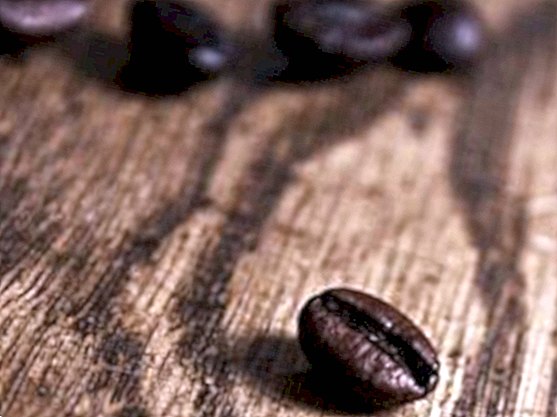And coffee is healthy!

Extra: Small coffee bar guide
How do you recognize a really good cappuccino, and what makes Latte macchiato and Caffè Latte different?
espresso
Perfectly prepared, it is almost a little thick and is served in a small preheated cup, which is filled to a maximum of two-thirds. On top is the crema, fine foam, in which the bubbles are barely visible.
Espresso macchiato
With a small hood made of milk foam, but without "liquid" milk.
Cortado
The Spanish variant of espresso macchiato. On a café solo (not quite as strong as an espresso) comes a milk foam hood, often a small shot of milk.
cappuccino
Originally prepared in Italian, it consists of an espresso lungo (boiled with twice the amount of water) and plenty of creamy milk foam. This is intended for spooning away, while drinking, he mixes with the espresso. Liquid milk or chocolate powder on the foam have nothing to look for in a "real" cappuccino.
Latte macchiato
The "spotted (macchiato) milk" should be three-layered: below milk, above espresso, above foam. The "Latte" contains more milk than a Caffè Latte: On an almost quarter liter comes an espresso.
Caffè Latte
For the coffee of the Italians (Café au Lait in France, Café con Leche in Spain, Galão in Portugal) equally strong coffee and hot milk are mixed. Milk foam is often dispensed with.
Filtered in the morning for breakfast, after the meal as espresso, after work in the latte macchiato and in between liters of coffee from the office machine: coffee is our favorite drink. The enjoyment is often lost. Add to that the concern: is so much coffee healthy at all? Nobody has to give up the caffeinated drink, as studies have shown.
A bad conscience from a health point of view is not appropriate, says Anna Flögel from the German Institute for Nutritional Research (DIfE) in Potsdam-Rehbrücke. The nutritionist has evaluated data from more than 42,000 study participants who have been regularly interviewed for around 17 years: "The result is clear.
Persons who drank at least four cups of coffee a day had a 23 percent lower risk of developing type 2 diabetes later than those who drank less than one cup a day. "The effect of the black guard was also investigated Illnesses like heart attack, stroke and cancer. "Here we could find no connection. In other words, no higher risk, "says the" normal coffee drinker "(four cups a day) Anna Flögel, and it does not seem to matter whether caffeine is included or not.
In cardiovascular diseases, drinking coffee can even have a protective effect. This was shown by a large overview study by the University of Naples (Italy). After that, the risk of having a stroke dropped 14 percent for those who drank one to three cups of coffee a day.
 © szue / photocase.com
© szue / photocase.comThe cause of this protective effect researchers are still on the track. Currently, they are taking a close look at the myriad of plant-based ingredients in coffee, such as the "antioxidant phenolic acids". "These substances seem to protect the arteries from arteriosclerosis by positively influencing inflammation levels in the blood," says Professor Martin Grond, neurologist at the Siegen Regional Hospital. "The level of inflammation CRP is lower among coffee drinkers and the inner lining of the veins remains more elastic." For espresso drinkers (three a day) Martin Grond is certain: "Healthy vessels are the best protection against heart attack, stroke and dementia." And coffee is more helpful than harmful.
The suspicion that drinking coffee permanently increases the blood pressure and thus the risk of heart attack and stroke, can no longer be sustained. "Today we know that in healthy people, caffeine initially raises blood pressure, but most people quickly normalize it, and when people drink coffee on a regular basis, even this short-term increase no longer occurs," says Martin Grond. It also does not increase the risk of later developing high blood pressure.
For people who already suffer from it, the study results are not clear. But it does seem that coffee does not increase the risk of heart attack or stroke. "Coffee is not forbidden for people with high blood pressure, but they should be a little more careful with it, especially if frequent blood pressure fluctuations occur, it is more advisable to decaffeinate," says the stroke expert.
In contrast, caffeine has a positive effect on the brain. There it increases the mental capacity and strengthens the memory - with "long-term effect".Studies have shown that longtime coffee drinkers in old age had a much lower reduction in mental ability and memory. However, too much of the drink can make you nervous and jerky.










